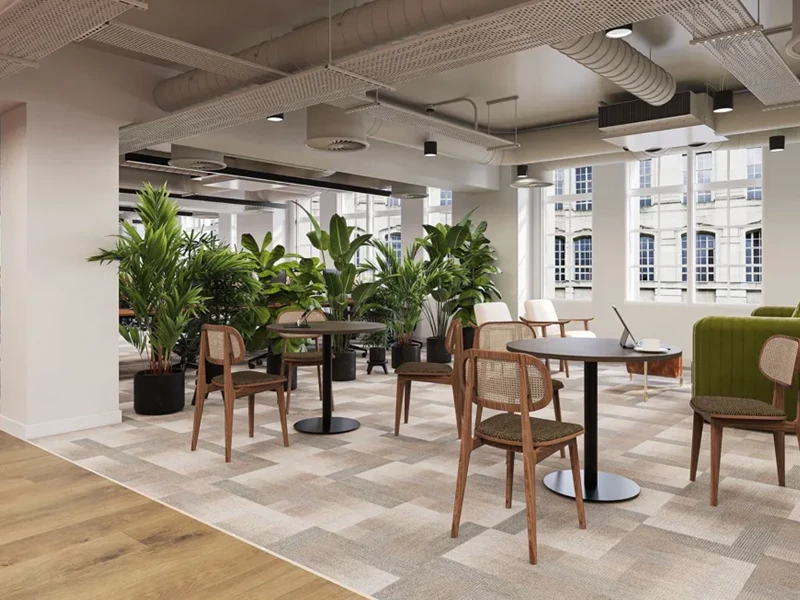Confidence has returned to the flexible office market faster than anticipated this year, with increased activity levels resulting in a gradual reduction in the supply of flexible offices across London and the regions.
Confidence has returned to the flexible office market faster than anticipated this year, with increased activity levels resulting in a gradual reduction in the supply of flexible offices across London and the regions.
At Workthere we have seen enquiries grow by almost 50 per cent on pre-Covid levels. But these requests are largely from customers who were previously working from home, eclipsing those from occupiers with lease expiries or expansion plans. However, there’s another emerging trend: the increase in demand for office space outside of the UK capital. In 2020, of our total enquiries, it was a near-equal split between those seeking offices in regional locations and those looking for London space, and so far this year we have seen a similar trend. The levels of demand in London have remained relatively stable, but since 2018 the regional demand has grown. Increasing from 33% to 45% in 2021 to date, with London still accounting for 55% of our total enquiries.
Covid has altered where people want to live and work. Perhaps the changes we’ve seen lately, combined with a surge in house price and house rental growth in regional cities, could help establish new office locations around the country. Looking more short-term, the rise in regional enquiries is bringing balance to the flex market. As a result of increased demand, we now see operators in a stronger position to negotiate deals closer to their list prices than they were earlier in the year, and across 2020.
The average price per private office desk in London has recovered 9% over the first six months of 2020 (£510 per desk), but across the rest of the UK, prices for flexible office space grew by 63% year-on-year (now £254 per private desk). This pricing differential for flexible office space is predominantly due to the fact that the regional markets are less mature and less well-supplied, and it is generating the emergence of a two-tier market between London and the rest of the UK for flexible office space.
As occupier appetite grows, we are likely to see more operators drawn to the regional markets to capitalise on increasing demand. Not only are we witnessing a rise in individuals and start-ups looking for space in the regional markets; larger corporate organisations are altering their working cultures to offer greater flexibility for staff within their occupational portfolios. This is likely to lead to a growth of geographical networks of offices - both in London and around the UK - based on talent and client needs. Innovation hub Plus X is an example of an operator that is looking to expand its presence throughout the UK. Like the London boroughs, regional markets also have their own nuances and a different mix of tenant profiles.
Sector-specific hubs may well begin to populate these locations; such as tech and fast-fashion in Manchester and life sciences and educational space in Cambridge. Lloyds of London, for instance, is looking at creating a new hub in Manchester, we’ve also seen large companies such as Credit safe and Activpayroll take space in the city centre in the last few months.
In a very short space of time, the UK flexible office market has blossomed. Five years from now, those changes could look like the beginning of a new era.







